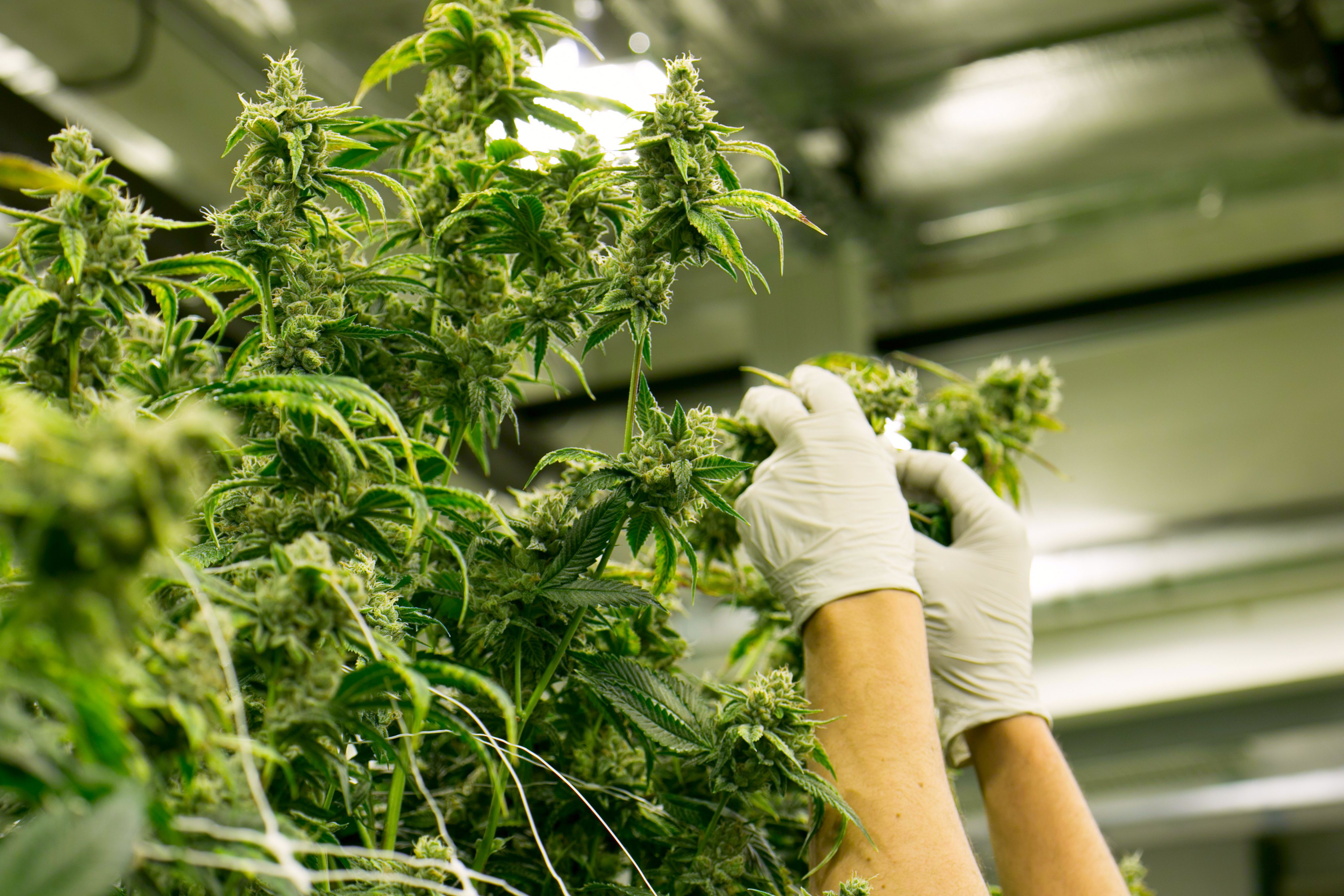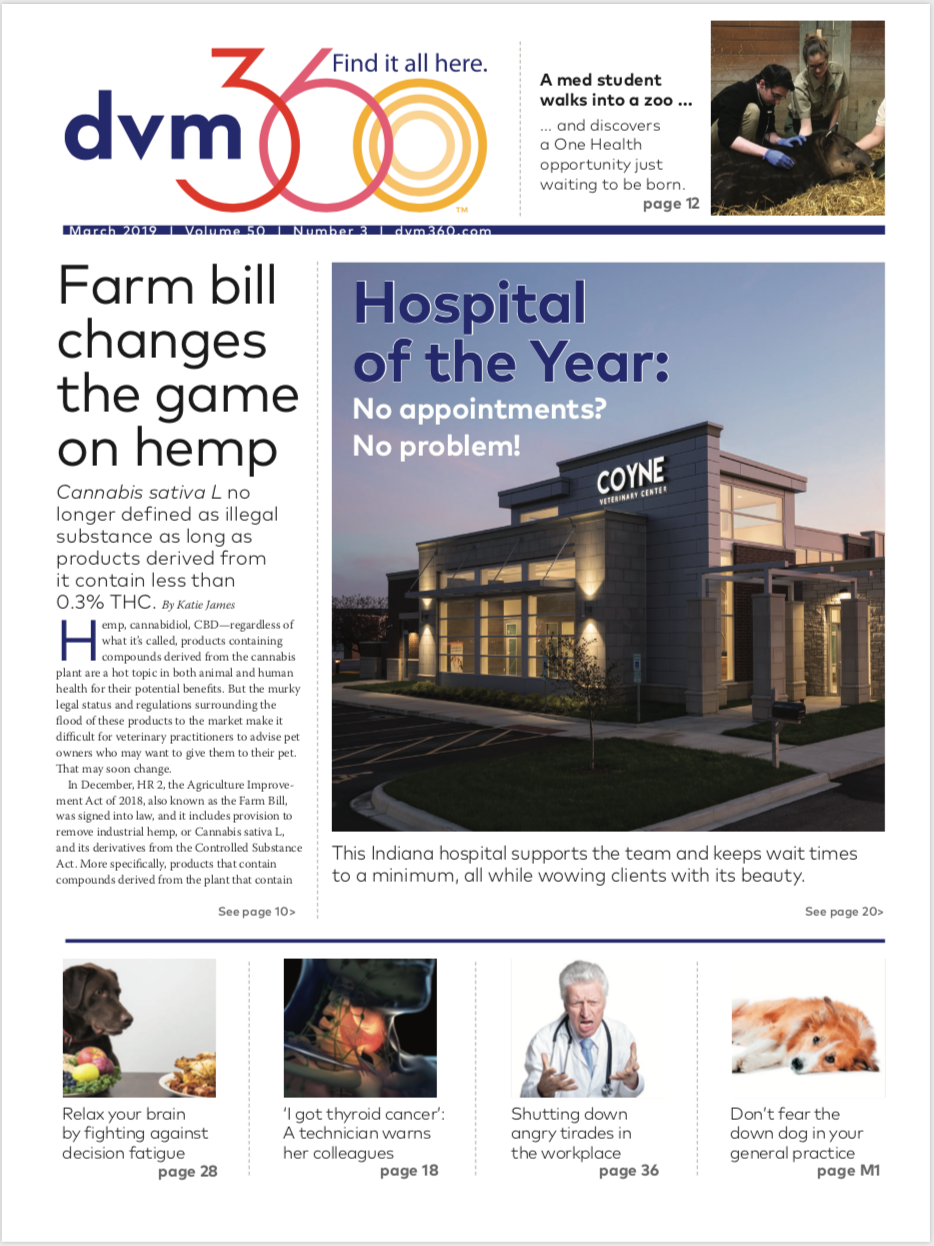Farm bill signed into law; removes industrial hemp from Controlled Substance Act
Cannabis sativa L no longer defined as illegal substance as long as products derived from it contain less than 0.3% THC.
The Colonel/stock.adobe.com

Hemp, cannabidiol, CBD-regardless of what it's called, products containing compounds derived from the cannabis plant are a hot topic in both animal and human health for their potential benefits. But the murky legal status and regulations surrounding the flood of these products to the market make it difficult for veterinary practitioners to advise pet owners who may want to give them to their pet. That may soon change.
In December, HR 2, the Agriculture Improvement Act of 2018, also known as the Farm Bill, was signed into law, and it includes provision to remove industrial hemp, or Cannabis sativa L, and its derivatives from the Controlled Substance Act. More specifically, products that contain compounds derived from the plant that contain less than 0.3 percent of tetrahydrocannabinol (THC), the psychoactive compound found in the plant, will be legal. Those that contain a higher percentage of THC will still be subject to Schedule I controlled substance regulations, according to an announcement about the bill from the AVMA.
The bill notes that while it loosens the regulations for cannabis in the Controlled Substance Act, regulations established in the federal Food, Drug and Cosmetic Act and the Public Health Service Act have not been removed or altered, which will allow the FDA to still monitor label claims for products containing Cannabis sativa L and provide regulatory guidance.
Curious about CBD?
Here are five quick Q&As with Stephen Cital, RVT, RLAT, SRA, VCCS and VTS-LAM, about the use of CBD in veterinary practice following passage of the Farm Bill.
The FDA released a lengthy statement from Commissioner Scott Gottlieb, MD, about the removal of the substance from the act, clarifying the agency's authority over products containing industrial hemp.
“In short, we treat products containing cannabis or cannabis-derived compounds as we do any other FDA-regulated products-meaning they're subject to the same authorities and requirements as FDA-regulated products containing any other substance,” says Dr. Gottlieb in the statement.
He also discusses products not approved by the FDA that claim to contain cannabis-derived compounds, such as CBD. “Among other things, the FDA requires a cannabis product (hemp-derived or otherwise) that is marketed with a claim of therapeutic benefit, or with any other disease claim, to be approved by the FDA for its intended use before it may be introduced into interstate commerce. This is the same standard to which we hold any product marketed as a drug for human or animal use.”
Products containing cannabis-derived ingredients that claim to diagnose, mitigate, cure or prevent diseases are considered new drugs or new animal drugs and must go through the proper FDA drug approval process before they can be marketed to human or animal patients in the United States. Failure to follow this process is illegal, the statement notes.
The agency plans to create clear pathways through its approval process for companies wishing to introduce new products into the marketplace. It also plans to hold a public meeting for stakeholders to discuss cannabis and its derivatives and its place in human and animal health, the statement concludes.
“We recognize the potential opportunities that cannabis or cannabis-derived compounds could offer and acknowledge the significant interest in these possibilities. We're committed to pursuing an efficient regulatory framework for allowing product developers that meet the requirements under our authorities to lawfully market these types of products,” says Dr. Gottlieb.
What does this mean for practitioners? It just might mean that the next time a pet owner comes into your hospital asking for guidance on CBD chews for Max's osteoarthritis, you may not have to dance around the subject uncomfortably. As the AVMA puts it, “This has implications for the potential use of these products for a variety of purposes.”
The AVMA has also created a quick sheet of all the animal health-related items in the Farm Bill, which can be accessed here.

Podcast CE: A Surgeon’s Perspective on Current Trends for the Management of Osteoarthritis, Part 1
May 17th 2024David L. Dycus, DVM, MS, CCRP, DACVS joins Adam Christman, DVM, MBA, to discuss a proactive approach to the diagnosis of osteoarthritis and the best tools for general practice.
Listen